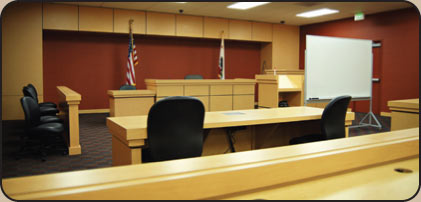


General Litigation
1. What types of cases does your firm handle?
Our firm handles a wide
variety of litigation in northeastern Pennsylvania in
both federal and state courts. Our practice areas
include personal injury litigation, products liability,
complex commercial litigation, land use cases, and
federal litigation. We also have a significant appellate
practice and our attorneys appear on a regular basis in
the Pennsylvania and Federal appellate courts.
2. Who pays the expenses of litigation?
As a general rule, each party is
responsible for his own court costs and attorneys’
fees. There are exceptions to this general rule where
the parties have entered into a contract that permits
the recovery of attorneys’ fees or if a statute
authorizes their recovery. Courts may also award
attorneys’ fees in cases where a party has pursued a
claim that has no merit and has been declared to be
frivolous.
3. How long will the lawsuit take?
This varies upon the complexity of
the case, the number of parties involved, whether the
parties are willing to make a reasonable settlement and
how busy the Court is. A very simple case with few legal
or factual issues could take a matter of months whereas
a complex case involving pretrial motions and appeals
could take years.
4. Where will my case be heard?
In general, most litigation
concerning matters arising in Monroe County will be
handled in the Monroe County Court of Common Pleas at
the Courthouse in Stroudsburg. However, Pennsylvania
permits smaller claims of no more than $8,000 to be
filed in the District Justice Courts. These are cases
which are often handled without an attorney and which
give the losing party the right to appeal and have the
case heard again in the Common Pleas Court. In cases
filed between residents of different states where the
amount in controversy is at least $75,000, the case may
be filed in Federal Court. The Federal Courts also have
jurisdiction over cases in which federal laws are at
issue.
5. Do I have a right to appeal if I am unsatisfied
with the result?
An appeal is generally an option in
most cases but filing an appeal does not usually mean a
second trial. In appeals from Common Pleas Courts’
decisions, the appeals court decides if there was a
proper legal basis for the trial Court’s decision.
Where the trial judge decided that a particular witness
was not believable, the appeals court will not reverse
this finding because the trial judge was in the presence
of the witness and was in the best position to judge the
witness’s demeanor and credibility.
6. Is there an alternative to filing suit?
Mediating disputes is becoming more
prevalent as a cost-effective way of settling disputes.
Mediation programs are now in place in many state
and federal courts. In some of these courts, a mediator
may be appointed without charge. In other cases, the
parties may share the costs of the mediator. If both
parties desire mediation and their respective positions
are reasonable, this may be an effective option for
settling a dispute in private and at much lower cost
than traditional lawsuits.
7. How much are your fees?
This varies upon the type of case.
Personal injury cases are typically handled on a contingent basis.
This means that you pay attorneys’ fees only if we
obtain money for you. Our fee will be a percentage of
the total recovery. Hourly fees are charged in other
types of litigation.

 |

